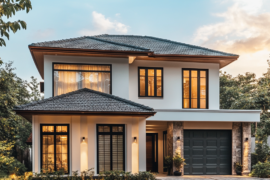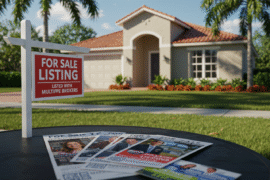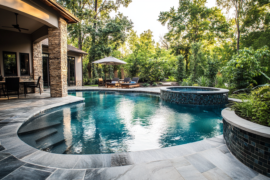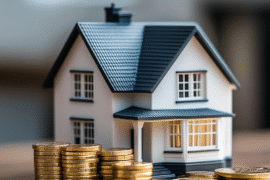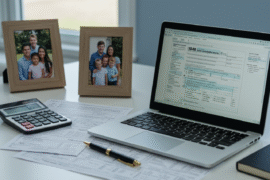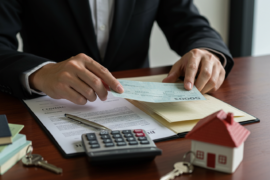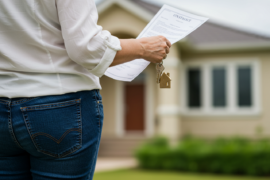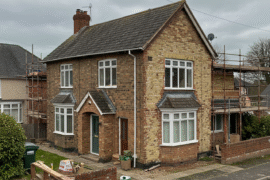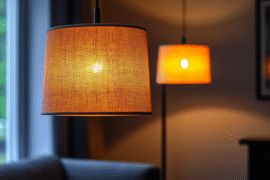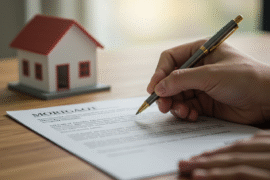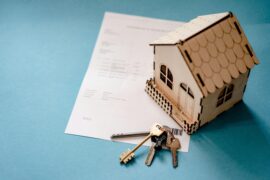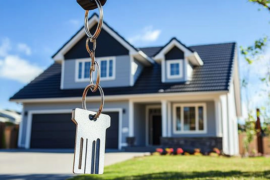This article may contain references to products or services from one or more of our advertisers or partners. We may receive compensation when you click on links to those products or services. Nonetheless, our opinions are our own.

Updated by Albert Fang
Buying a home is a huge milestone for most first-time buyers. But far from being a relief, this process can be intimidating and scary, especially if you’re starting on a tight budget.
It’s normal to find it hard to buy a single-family home on a budget. But with a solid strategy, discipline and a cool head, anyone can own their dream home without busting their budget. Here are five steps to owning a home on a budget.
Target a House You Can Afford
Society today has programmed us to believe that the type and size of house we buy primarily reflects our personalities and values. Yes, this may be true to some extent. But don’t let it lure you into buying a house you can’t afford. Most first-time homebuyers on a budget make this mistake only to end up with additional financial hardships and more space than they thought would be necessary.
Essentially, house affordability means keeping your total monthly payments manageable. This is determined by several factors, including your gross income, credit score, front-end ratio and back-end ratio.
Based on these factors, several rules of thumb are used to determine how much mortgage one can afford. The first rule of thumb is to consider a home that’s two to two-and-a-half times your annual gross income. For example, an individual with an annual gross income of $125,000 can afford a house in the range of $250,000 and $312,500.
But note that this is a general guideline and probably not what your lender will rely on. That’s where your front-end and back-end ratios come in.
The front-end ratio refers to the percentage of your gross monthly income that goes towards housing expenses (monthly mortgage payments, HOA insurance, property taxes, HOA fees e.t.c.). Most mortgage lenders like a front-end ratio not exceeding 28%.
On the other hand, the back-end ratio signifies the part of your monthly gross income that pays your monthly debts. The ideal back-end ratio for most mortgage providers is 36% for standard loans and 43% for FHA loans.
Plan for Adequate Home Insurance
Legally, you don’t need HO3 insurance to own a home. But going without one is easily the biggest financial mistake you could ever make when buying a single-family home on a budget. Anyway, your mortgage lender or bank will require you to include home insurance in the closing cost before they can finance your home purchase.
Generally speaking, lenders want an assurance that their financial interest is protected in case your home is destroyed or damaged by a covered catastrophe. HO3 insurance is not only about the lender. Actually, it’s more about your peace of mind and should never be overlooked. Getting adequate coverage for your home allows you to enjoy the home you’ve been saving up for years without worrying about uncertainties.
Avoid the 20% Down Payment
For buyers on a budget, the 20% down payment suggested by mortgage lenders makes owning a home daunting and unrealistic.
Lenders prefer a larger down payment because it reduces their risk in case you default on payments. They reward this with quicker approval, reduced mortgage interest rates and the benefit of not paying PMI.
But for a buyer on a tight budget, a 20% down payment can be an uphill task, as even a $150,000 fixer-upper will require having $30,000 in cash. If you don’t have this amount in your savings, it may take you up to five years to save it, assuming you put aside $500 every month.
Luckily, not all lenders require you to put a huge amount on the line upfront. Actually, some lenders have products that let you put down as low as 3%.
Not putting down 20% is a double-edged sword because it lets you own a home sooner but comes with higher monthly payments. However, if you can afford the payments, including the PMI, don’t let the thought of a higher down payment scare you from owning a home soon.
Consider a No-Closing-Cost Mortgage
Another way you can alleviate your financial burden when buying a home on a budget is by going with a no-closing-cost mortgage. When buying a house, closing costs are the additional expenses, aside from the property’s price, that must be paid to finalize the real estate transaction.
Closing costs include title search fees, appraisal fees, property taxes, HO3 insurance, loan origination fees and survey fees.
These costs vary between states and locations but usually range between 3% and 6% of the principal balance. While the percentages don’t seem like a lot, the actual figures can be daunting depending on the cost of the house. For instance, a $250,000 home requires $7500 to $15,000 in closing costs.
Some lenders have a no-closing-cost product if you can’t cover these closing costs out of pocket. This option enables you to complete the transaction without paying the closing cost upfront. Depending on the agreement, the lender may roll the closing costs into your principal balance or pay the costs in exchange for a higher interest rate. Either way, you become a homeowner quickly but end up paying more in the long run.
Other Ways to Buy a Home on a Budget
- Move to a less expensive market – if the cost of single-family homes is over the roof where you live, it might take longer to become a homeowner. Instead of overpaying for a rental, it might make more sense to move to another state or city where housing is more affordable (if you can, that is).
- Consider a fixer-upper – buying a fixer-upper can be a relatively easier path to property ownership in a better neighborhood. However, note that renovations can be a hassle with the assistance of a homeowners insurance or home warranty company.. We recommend going this route, particularly if the fixes are mainly cosmetic, so you don’t strain your budget.
- Shop when houses are cheap – winter is the best time for cash-strapped buyers to snag up a deal on affordable houses. There are scarce buyers around this time, so most sellers suspend their listing waiting for demand to take a spin. Homeowners looking to sell their property around this time are looking to sell ASAP, increasing your chances of scoring a better deal.

Reviewed and edited by Albert Fang.
See a typo or want to suggest an edit/revision to the content? Use the contact us form to provide feedback.
At FangWallet, we value editorial integrity and open collaboration in curating quality content for readers to enjoy. Much appreciated for the assist.
Did you like our article and find it insightful? We encourage sharing the article link with family and friends to benefit as well - better yet, sharing on social media. Thank you for the support! 🍉
Article Title: Buying a Single-family Home on a Budget – Is It Possible?
https://fangwallet.com/2022/04/25/buying-a-single-family-home-on-a-budget-is-it-possible/The FangWallet Promise
FangWallet is an editorially independent resource - founded on breaking down challenging financial concepts for anyone to understand since 2014. While we adhere to editorial integrity, note that this post may contain references to products from our partners.
The FangWallet promise is always to have your best interest in mind and be transparent and honest about the financial picture.
Become an Insider

Subscribe to get a free daily budget planner printable to help get your money on track!
Make passive money the right way. No spam.
Editorial Disclaimer: The editorial content on this page is not provided by any of the companies mentioned. The opinions expressed here are the author's alone.
The content of this website is for informational purposes only and does not represent investment advice, or an offer or solicitation to buy or sell any security, investment, or product. Investors are encouraged to do their own due diligence, and, if necessary, consult professional advising before making any investment decisions. Investing involves a high degree of risk, and financial losses may occur including the potential loss of principal.
Source Citation References:
+ Inspo















